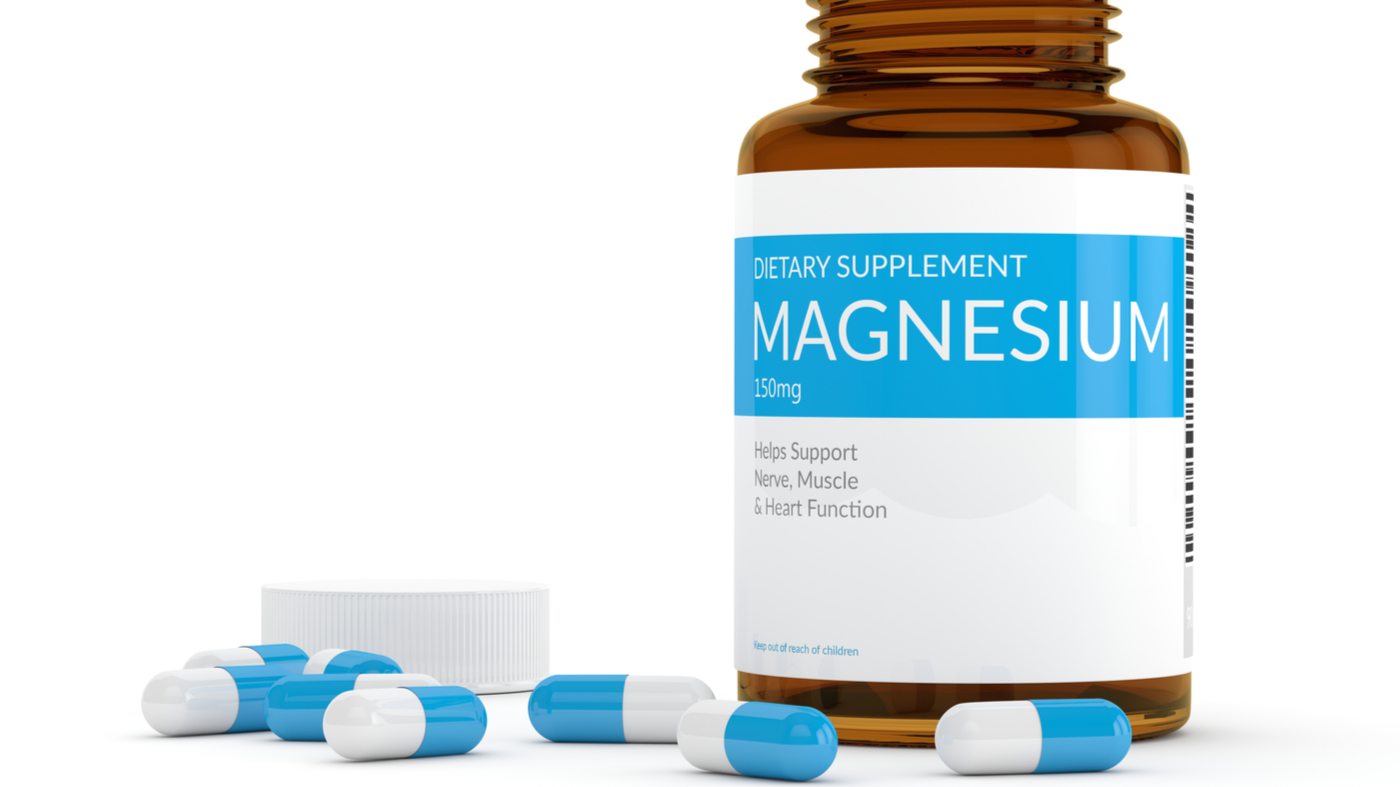can you take magnesium while pregnant
Can You Take Magnesium While Pregnant? What You Need To Know
Magnesium is an essential mineral that plays a crucial role in various bodily functions, including muscle and nerve function, blood pressure regulation, and protein synthesis. During pregnancy, the nutritional needs of a woman increase, and proper intake of essential minerals like magnesium becomes even more important. However, it is important to consider the safety and potential risks associated with taking magnesium during pregnancy. In this article, we will answer some commonly asked questions about taking magnesium while pregnant.
1. Is it safe to take magnesium supplements during pregnancy?
NLP-generated answer:
Taking magnesium supplements during pregnancy can be safe and beneficial. However, it is always important to consult with your healthcare provider before starting any new supplements or medications during pregnancy.
- Consult with your healthcare provider before starting magnesium supplements
- They can determine the appropriate dosage and whether it is necessary for your specific needs
- Magnesium-rich foods like green leafy vegetables, nuts, seeds, and whole grains are also a good source of this mineral
2. How much magnesium should I take during pregnancy?
NLP-generated answer:
The recommended daily intake of magnesium during pregnancy varies depending on factors such as age, health condition, and individual needs. Your healthcare provider can provide personalized recommendations based on your specific situation.
- The recommended daily intake for pregnant women aged 19-30 is 350 milligrams (mg)
- Pregnant women aged 31 years and older should aim for a daily intake of 360 mg
- It's important to discuss your magnesium intake with your healthcare provider to ensure you are meeting your individual requirements
3. Can magnesium help with pregnancy-related leg cramps?
NLP-generated answer:
Magnesium supplementation may help reduce pregnancy-related leg cramps. Leg cramps are a common occurrence during pregnancy, especially in the later stages. Magnesium plays a role in muscle contraction and relaxation, and a deficiency in this mineral may contribute to muscle cramps.
- Consult with your healthcare provider before taking magnesium for leg cramps
- They can determine the appropriate dosage and whether it is necessary for your specific needs
- Ensure you are consuming a balanced diet rich in magnesium, as dietary sources are important for overall health
4. Can magnesium supplements help with pregnancy-induced constipation?
NLP-generated answer:
Magnesium supplements may help alleviate pregnancy-induced constipation. Constipation is a common issue during pregnancy due to hormonal changes and the pressure of the growing uterus on the digestive system. Magnesium has mild laxative effects and can help soften stools and promote bowel movements.
- Discuss with your healthcare provider before starting magnesium supplements for constipation relief
- Follow the recommended dosage provided by your healthcare provider
- Ensure you are also consuming an adequate amount of dietary fiber and staying hydrated to support healthy bowel movements
5. Are there any risks or side effects associated with taking magnesium during pregnancy?
NLP-generated answer:
While magnesium supplements are generally considered safe for most pregnant women when taken in recommended doses, there can be some risks and side effects. Some potential risks include interactions with certain medications and the possibility of diarrhea or stomach upset.
- Always consult with your healthcare provider before taking any new supplements or medications during pregnancy
- Follow the recommended dosage and guidelines provided by your healthcare provider
- If you experience any severe side effects or discomfort, seek medical attention immediately
6. Can magnesium supplementation help with pregnancy-related sleep disturbances?
NLP-generated answer:
Magnesium supplementation may have a positive effect on sleep quality and duration during pregnancy. Sleep disturbances are common during pregnancy, and magnesium has been found to promote relaxation and improve sleep.
- Discuss with your healthcare provider before taking magnesium for sleep disturbances
- They can provide personalized recommendations based on your specific situation
- Ensure you are following good sleep hygiene practices, such as maintaining a regular sleep schedule and creating a relaxing bedtime routine
7. Can magnesium supplements help reduce pregnancy-related swelling?
NLP-generated answer:
Magnesium supplements may have a limited impact on reducing pregnancy-related swelling. Swelling, also known as edema, commonly occurs in pregnancy due to hormonal changes and increased fluid retention. While magnesium can help with muscle relaxation, it may not directly alleviate swelling.
- If you are experiencing significant swelling during pregnancy, it is important to consult with your healthcare provider
- There may be other underlying causes that need to be addressed
- Follow your healthcare provider's recommendations for managing swelling, such as staying hydrated, elevating your legs, and avoiding prolonged periods of standing or sitting
8. Can magnesium interact with prenatal vitamins or other medications?
NLP-generated answer:
Magnesium can interact with certain medications, including some prenatal vitamins. It is essential to inform your healthcare provider about all the medications and supplements you are taking to avoid any potential interactions or adverse effects.
- Always consult with your healthcare provider before starting any new supplements or medications during pregnancy
- Provide a complete list of all medications, including prenatal vitamins, to your healthcare provider
- Your healthcare provider can determine if there are any potential interactions and make any necessary adjustments to your medication regimen
9. What are some natural food sources of magnesium for pregnant women?
NLP-generated answer:
Including magnesium-rich foods in your diet is a great way to ensure you are getting an adequate intake of this essential mineral during pregnancy. Some natural food sources of magnesium include green leafy vegetables (spinach, kale), nuts and seeds (almonds, pumpkin seeds), whole grains (brown rice, whole wheat), and legumes (beans, lentils).
- Incorporate a variety of magnesium-rich foods into your meals and snacks
- Ensure you are consuming a balanced diet that includes a wide range of nutrients for overall health
- Consider consulting with a registered dietitian for personalized dietary recommendations during pregnancy
10. Can magnesium supplementation help prevent preeclampsia during pregnancy?
NLP-generated answer:
Magnesium supplementation may play a role in the prevention of preeclampsia, a potentially serious condition characterized by high blood pressure and organ damage during pregnancy. However, the use of magnesium for preeclampsia prevention should be discussed with your healthcare provider, as individual circumstances and risk factors need to be considered.
- If you are at risk for preeclampsia, talk to your healthcare provider about the potential benefits and risks of magnesium supplementation
- They can provide personalized recommendations based on your medical history and risk factors
11. Can magnesium supplements help with gestational diabetes?
NLP-generated answer:
Magnesium supplementation may have some positive effects on gestational diabetes. Some studies suggest that adequate magnesium intake may help improve insulin sensitivity and regulate blood sugar levels. However, it is important to consult with your healthcare provider regarding the management of gestational diabetes and the role of magnesium supplementation.
- Discuss with your healthcare provider before starting magnesium supplements for gestational diabetes
- Follow your healthcare provider's recommendations for managing gestational diabetes, which may include dietary changes, exercise, and insulin therapy
- Maintain regular follow-up appointments with your healthcare provider to monitor your blood sugar levels and overall health
12. Can taking magnesium during pregnancy cause birth defects?
NLP-generated answer:
When taken in recommended doses, magnesium supplements are not known to cause birth defects. However, it is always important to consult with your healthcare provider before taking any new supplements or medications during pregnancy to ensure their safety and discuss any potential risks.
- Discuss with your healthcare provider before starting magnesium supplements during pregnancy
- Inform your healthcare provider about your complete medical history and any existing conditions
- Follow your healthcare provider's recommendations for prenatal care and screenings to monitor the health and development of your baby
13. Can magnesium supplements help prevent preterm labor?
NLP-generated answer:
Magnesium sulfate, a different form of magnesium, may be used to prevent preterm labor in certain cases. However, this is a medical intervention that should only be administered under the guidance of your healthcare provider based on your individual situation and risk factors for preterm labor.
- Discuss with your healthcare provider if you are at risk for preterm labor
- They can evaluate your specific circumstances and determine the most appropriate interventions, which may or may not include magnesium sulfate
- Follow your healthcare provider's recommendations for prenatal care and screenings to monitor the health and development of your baby
14. Are there any specific guidelines for taking magnesium supplements during pregnancy?
NLP-generated answer:
When taking magnesium supplements during pregnancy, it is important to follow some general guidelines to ensure their effectiveness and safety.
- Consult with your healthcare provider before starting any new supplements or medications
- Follow the recommended dosage provided by your healthcare provider
- Take magnesium supplements with food to help with absorption and minimize the risk of stomach upset
- Ensure you are also consuming a balanced diet that includes natural food sources of magnesium
- Monitor your symptoms, side effects, and overall well-being, and communicate any concerns with your healthcare provider
Conclusion
Taking magnesium during pregnancy can be safe and beneficial for many women, but it is important to consult with your healthcare provider before starting any new supplements or medications. The appropriate dosage and specific recommendations may vary based on your individual needs and circumstances. Additionally, incorporating magnesium-rich foods into your diet can help ensure you are getting an adequate intake of this essential mineral. Remember to prioritize your health and well-being during pregnancy by following the guidance of your healthcare provider and maintaining regular prenatal care.


Posting Komentar untuk "can you take magnesium while pregnant"